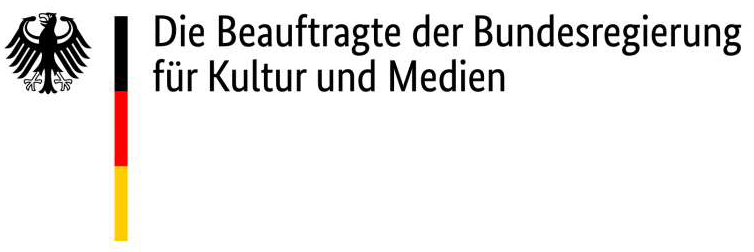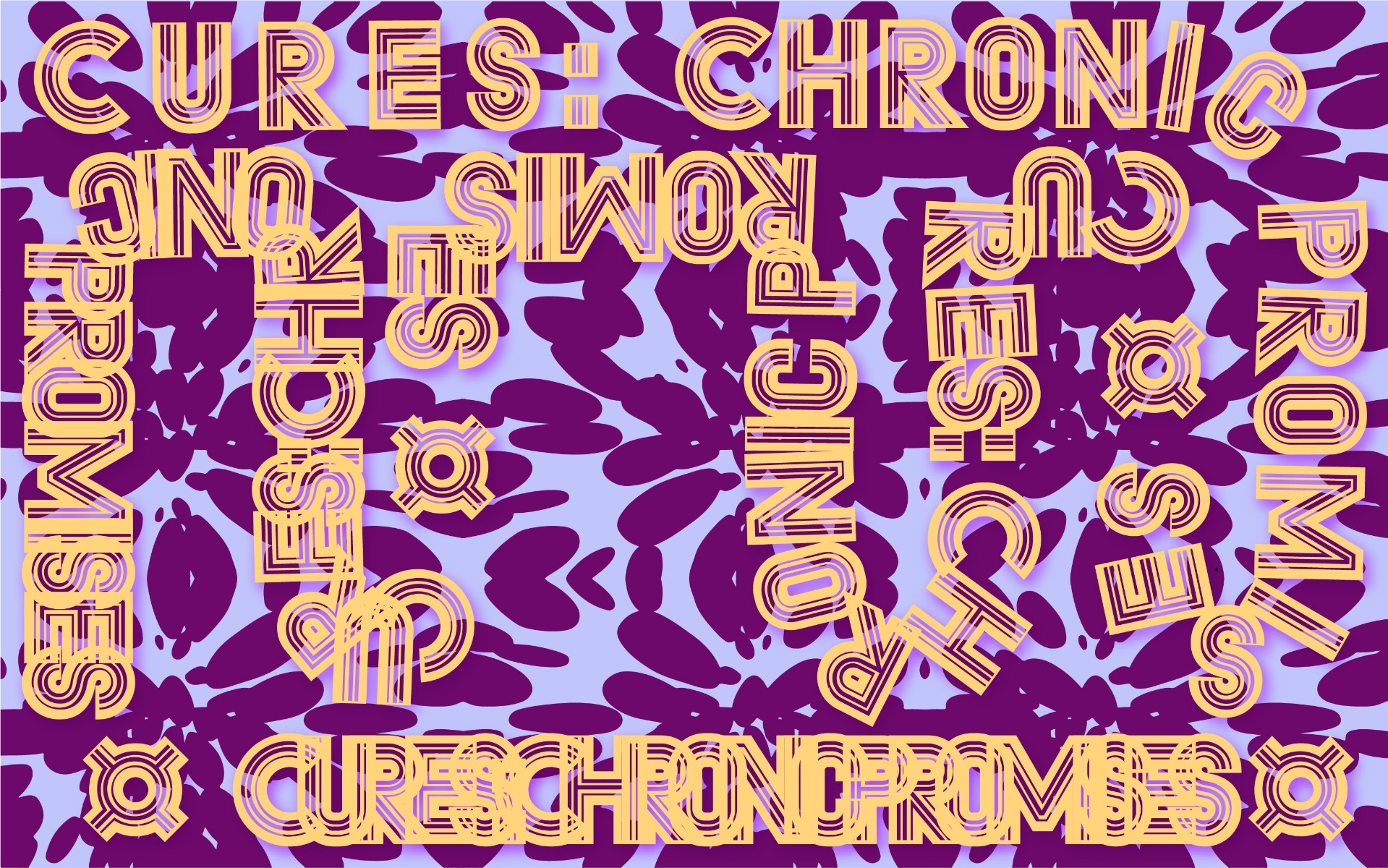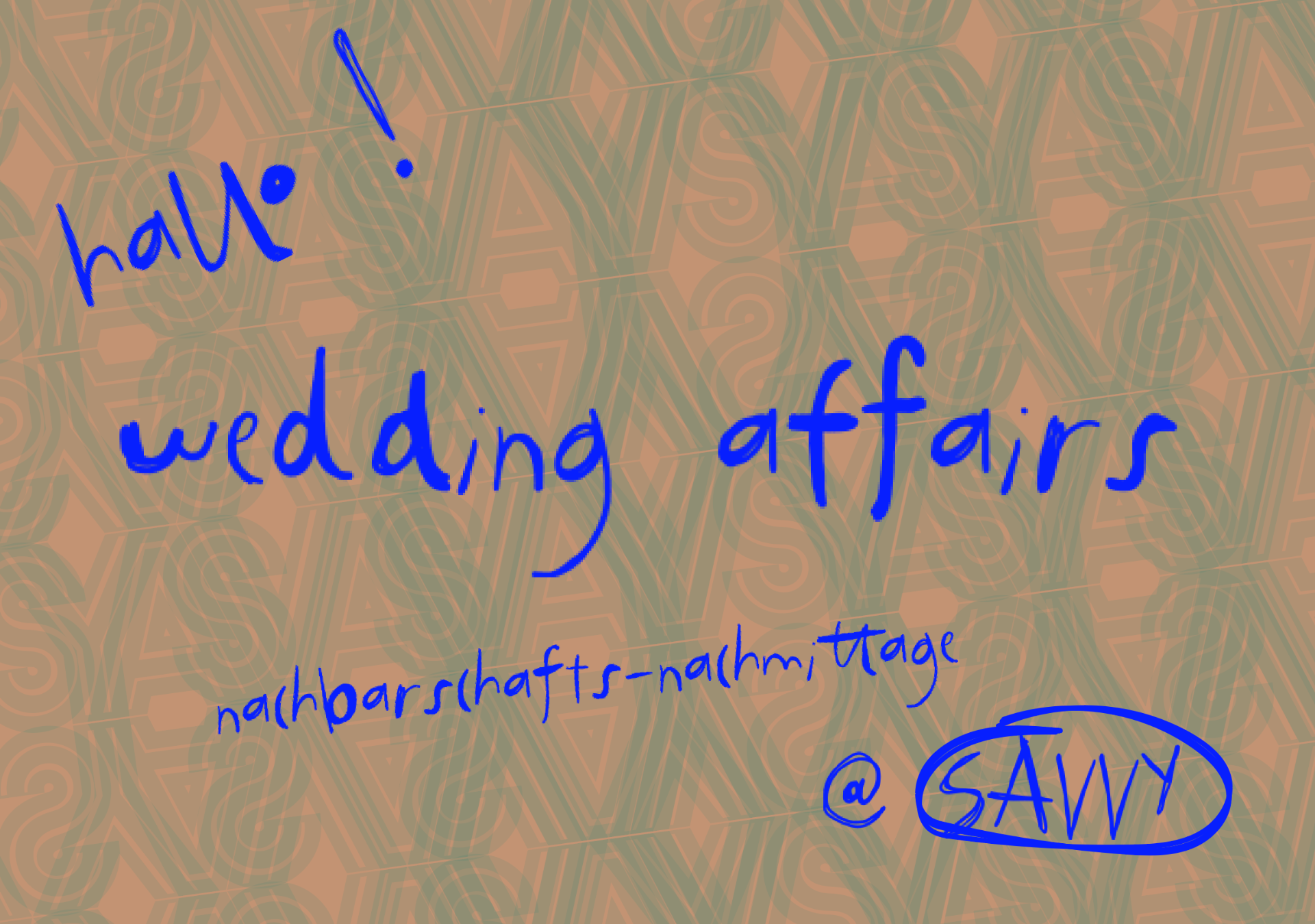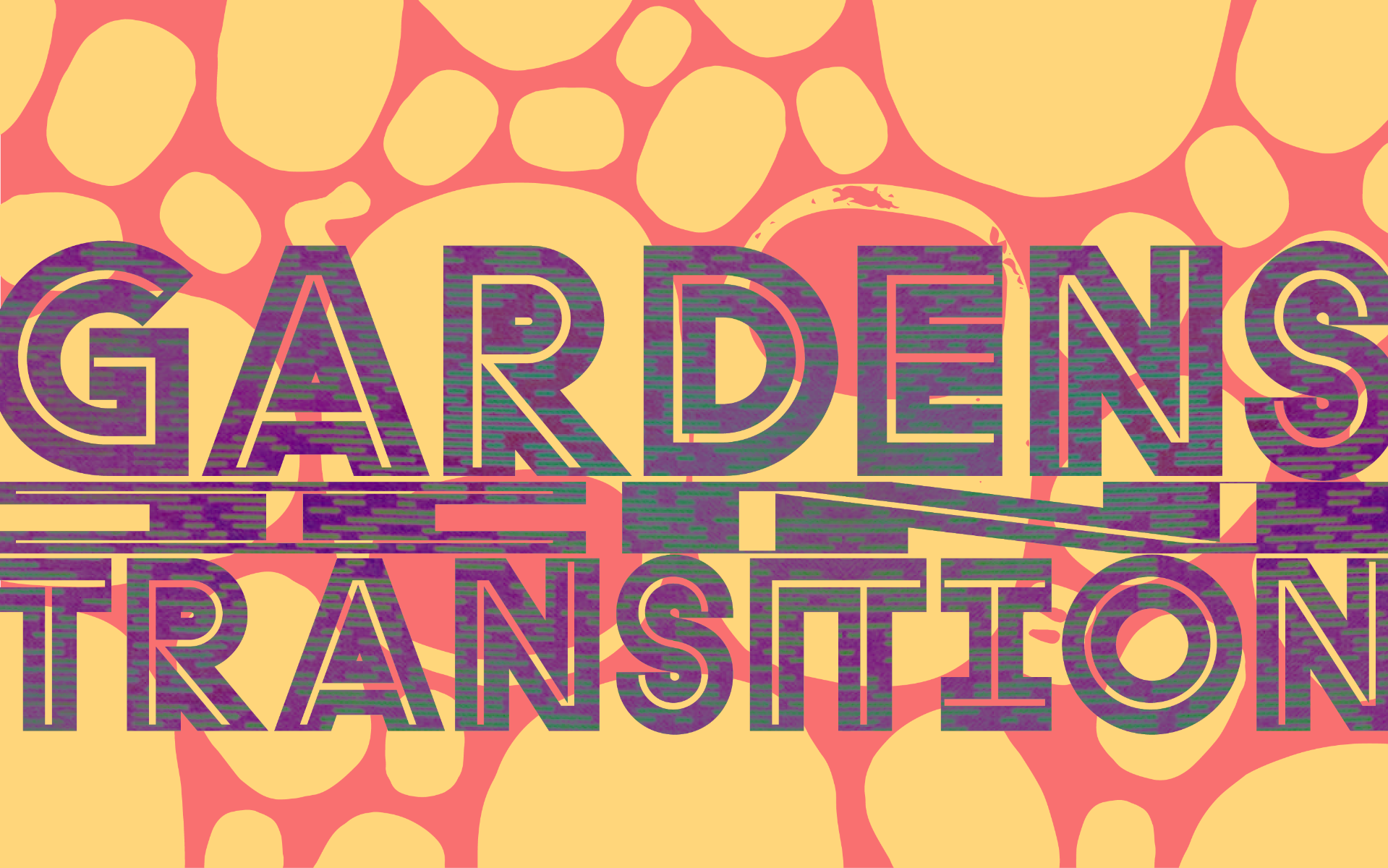TRANSITIONS
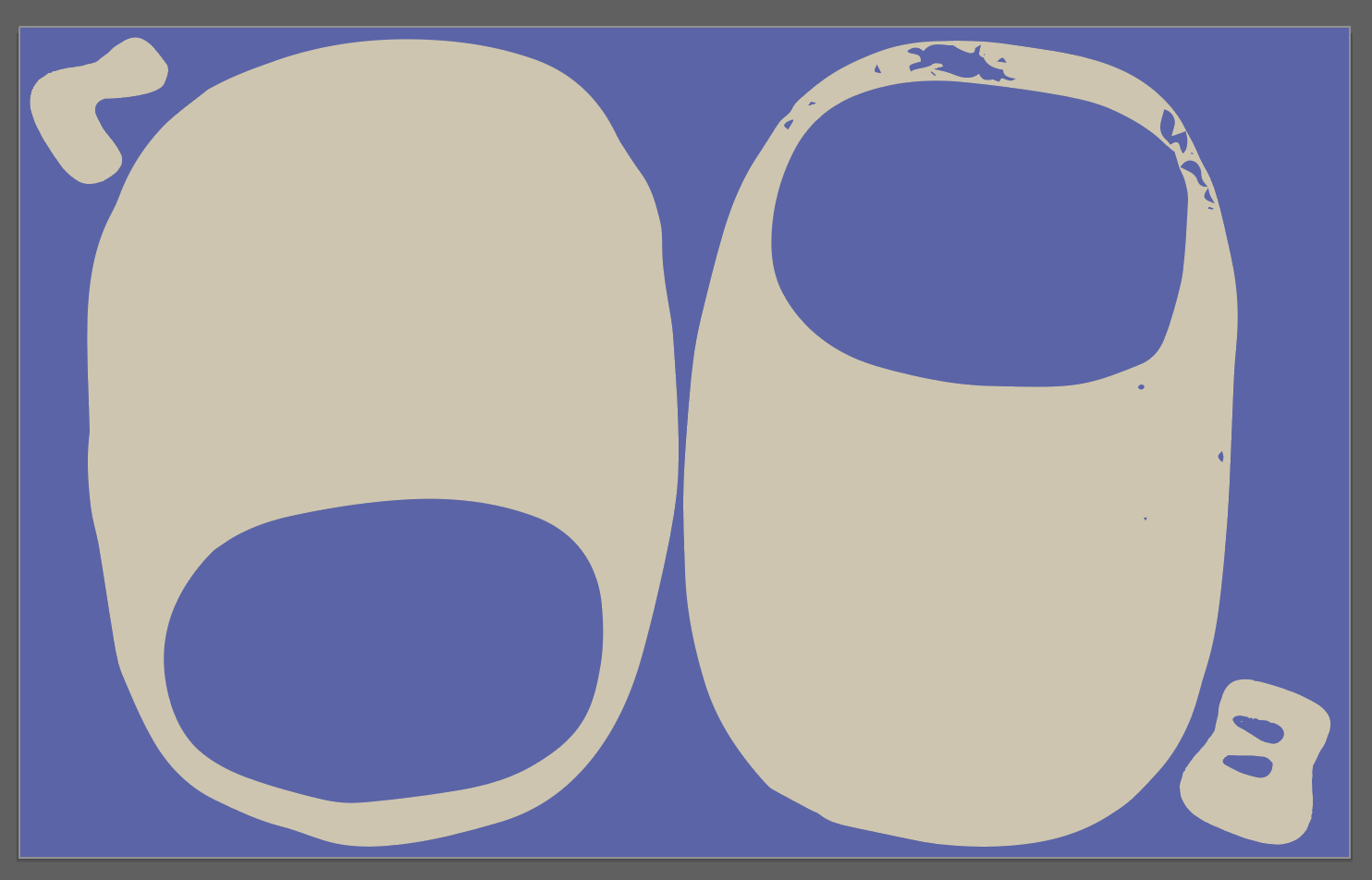
CONNECTING DISCOURSES, EXHIBITIONS, NEIGHBOURHOODS AND STRUCTURES OF ARTISTIC TRANSITION
2024–2025
26.–27.04.2024 | Gardens In transition | International Conference |
09.05.–21.06.2024 | CURES | Exhibition |
22.06.2024 | CURES | Invocations |
05.07.–23.08.2024 | LABOUR | Exhibition |
24.08.2024 | LABOUR | Invocations |
13.09.–01.11.2024 | Society | Exhibition |
12.11.2024 | Society | Invocations |
29.11.2024–24.01.2025 | Historical Children | Exhibition |
25.01.2025 | Historical Children | Invocations |
2024–2025 | Wedding Affairs | Ongoing neighbourhood project |
SAVVY Contemporary’s current artistic program takes colonial heritage and decolonization as facts and practices of transition. Since its inception or the past 14 years, the organisation has faced colonial legacies and facts in and outside Germany with the moral and aesthetic imagination of decolonization.
DECOLONIAL TRANSITIONS
In the years ahead, SAVVY Contemporary will engage with the persistent qualities of colonisation and in the urgent demands for transitions. Using experimentation, SAVVY’s transition will show that decoloniality, as the anthropologist Rosalind Morris describes it, immerses us in lifeworlds and artworlds known to be “an incomplete dialectic.”
We envision transition as a decolonial practice in art-making, education, public engagement, and institution-building locally and internationally. TRANSITIONS encompasses exhibitions, community engagement, conferences, research, commissioned works, workshops, performances, live events, radio contributions, and publications. It emphasises that decolonisation is an ongoing practice of redefining, realigning, recalling, and reconfiguring ways of being with a diverse array of communities, institutions, infrastructures, and contexts.
INVENTING NEW TRANSITIONS
Germany knows transitions well as it moves from one so-called “post” to the next: from post-war to cold-war, from Gastarbeiter to Wirtschaftswunder, from post-wall to Baseballschlägerjahre, from Vergangenheitsbewältigung to newly found national pride, from post-migrant to post-democracy with right now an alarming high of general support for the far-right, fascist AfD across society. In recent years, another undeniable interest in transitions is “decolonisation”.
Through art in the past few decades, the prefix “de”‘ in “decolonisation” has launched programs of unlearning that diversify the interventions of the base word, “colony.” A term brimming with potency for many individuals as they travel and settle to cultivate the soil, extract resources for productivity, and amass power to sustain generational wealth. Now a vocabulary that can only emerge from it is that of refusal, resistance, restitution, and abolition. The concept of colonisation in German-speaking countries is still palpable in a number of sources beginning in their Prussian heritage and in the histories of internal colonisation administered under the rubric of Prussian identity.
How is the heritage of colonisation understood when it is rooted in deep history? For instance, when and how did expeditions for scientific knowledge and new-world solutions transition to violent, oppressive tasks? It is then imperative to study the transition of acts, intentions, and tasks. Among indigenous communities, the term “development” means erasure of culture and tradition, abuse of power instead of a transition to a collective well-being. German textbooks and media still present problematic and conservative portrayals of other cultures and colonial subjects. Despite a more sophisticated discourse around colonialism, it remains deeply rooted in colonial values and materials. These manifestations are often not acknowledged as issues that require various approaches and scales of counteraction. Unsurprisingly, this condition merges with other contemporary issues, making colonialism a present-day, multi-layered, transhistorical and translocal problem. Until today, former colonising states still grapple to find a language for colonisation and decoloniality as subjects, conditions, and obligation to be discussed and confronted by the state and its ordinary citizenry, by older and future generations, and in policy and reality. New transitions must be invented.
A COLLECTIVE IN TRANSITION
German colonialism, often viewed as less entrenched than other European powers, was seen as annexationist or moderate. The ideology had a utilitarian focus, expanding agriculture and trade to suppress socialist unrest after the 1870 depression. Rooted in liberal ideas, practices like emigrationist colonialism shaped the German perception of colonisation as ethically necessary.
Emigration and economic motives drove German colonial ideologies, gaining popularity among the middle class. This led to the institutionalisation of colonialism. This history is mostly overlooked in discussions of reparation, restitution, justice and apology. To truly establish decolonisation in German society, there must be a shift from theory to a tangible movement and organisation.
The current German discursive architecture limits the study of the evolution of these colonial ideologies to national and international policies covering topics such as migration, climate change, labour or even war and other conflicts. Some specialists have established the link between these ideologies to the German imperial project later on, but this connection remains undervalued in mainstream discussion. Rare scholarly ventures compare the network of ideas and action implemented in German territories in Africa and Oceania with the settlement of Germans in Central-Eastern Europe and in America.There is a huge gap in discussions of colonisation and decolonisation.
In these chasms, SAVVY Contemporary’s experiments continue the process of “permanent translation” of colonisation as a practice and concept that coexists in the daily fabric of Germany and in the long arc of German colonial ideology. By translating the quotidian dynamics of colonial thought and in effect, deliberating its “non-translation” as a legitimate progress of history, the overall program called Transitions pays attention to segments, holes, fragments, and patterns of colonial ideology, action, fantasy and afterlife within the waves of pressing contemporary issues that local and global Germans experience as well as the communities that constitute German civil society.
Concept & artistic direction Renan Laru-an
The 15-months-long programme TRANSITIONS is funded by Die Beauftragte der Bundesregierung für Kultur und Medien.
